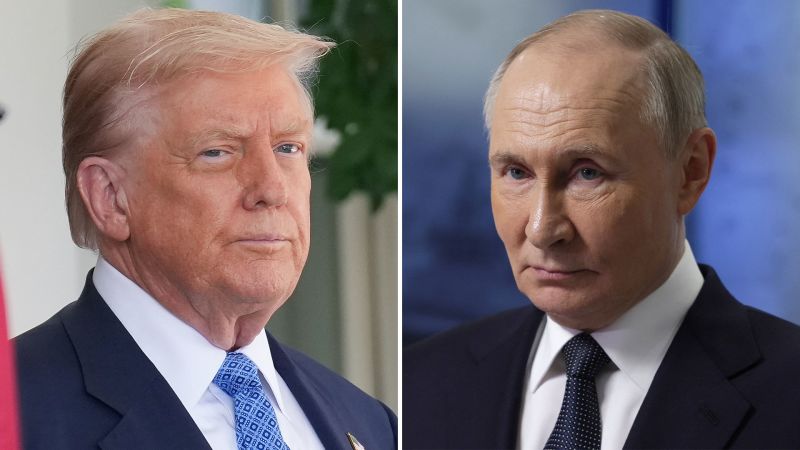In a notable diplomatic engagement, President Donald Trump announced his upcoming meeting with Russian President Vladimir Putin, scheduled for Friday, August 15, 2025, in Alaska. This much-anticipated summit comes as a response to ongoing discussions regarding a potential peace deal aimed at bringing an end to the persistent war in Ukraine. Trump described the meeting as crucial, hinting at possible territorial negotiations that may involve “some swapping of territories,” a contentious issue that has implications for both countries and the affected region.
Trump’s announcement was conveyed through a post on Truth Social, which emphasized the importance of the meeting not only for U.S.-Russia relations but also for broader geopolitical stability. He stated, “The highly anticipated meeting between myself, as President of the United States of America, and President Vladimir Putin, of Russia, will take place next Friday in the Great State of Alaska.” This declaration indicated a shift in U.S. diplomatic posture and a willingness to engage with Russia on contentious issues like Ukraine.
The meeting is precipitated by discussions between U.S. officials, European leaders, and Ukrainian representatives concerning a proposal from Putin that seeks to halt military operations in Ukraine. According to Western sources, this plan involves Ukraine potentially ceding significant territories—including the Donbas region and Crimea, both of which are areas of ongoing conflict. The implications of such territorial concessions have raised alarms among European officials who are concerned that this might allow Putin to circumvent anticipated sanctions from Trump while offering little substantive gain in return.
In a recent meeting held in Moscow, Putin’s envoy, Steve Witkoff, presented the proposal, which would effectively freeze current battle lines but remained vague on many details. European leaders expressed skepticism, fearing that this could merely serve as a tactic for Russia to avoid further sanctions while asserting more territorial control over Ukraine.
Meanwhile, the discussions surrounding the proposed summit seemed to be expedited by the unfolding situation, prompting additional calls between U.S. and European officials in the days leading up to the meeting. Witkoff’s engagements in these discussions included laying out pertinent details about the Russian proposal. However, uncertainties linger regarding its implications for other key regions in Ukraine, like Zaporizhzhia and Kherson, where Russian influence still persists.
Critically, the proposal navigates around several of Putin’s more stringent demands for concluding hostilities, such as Ukraine’s non-alignment with NATO and military restrictions. Witkoff has conveyed to the Europeans that this proposal might represent a favorable step toward longer-term peace negotiations, with hopes that once hostilities cease, more comprehensive solutions can be negotiated.
Nevertheless, concerns loom over whether allowing Russia to maintain control over the Donetsk and Luhansk regions could set a worrying precedent, potentially incentivizing future aggression against Ukraine. European officials have underscored that officially recognizing territories seized through military force could embolden Russia to pursue further attacks and create instability in the region.
Trump has been vocal about his frustration with the length of the conflict and appears more optimistic about the prospective peace deal. He articulated that there is a shared desire among European leaders, Putin, and Ukrainian President Volodymyr Zelensky to achieve peace, stating, “The European leaders want to see peace…My instinct really tells me that we have a shot at peace.”
However, discussions surrounding territorial concessions remain contentious, posing significant political challenges within Ukraine. Given constitutional restrictions, President Zelensky would need parliamentary approval or hold a national referendum prior to agreeing to any territorial changes. Trump has downplayed these constitutional concerns, encouraging Zelensky to act quickly to facilitate the negotiations.
In what is perceived as an evolving narrative, Trump has also moderated his hypothetical approach toward sanctions, deviating from previous hardline rhetoric. When pressed about the prerequisites for negotiations, he affirmed that a meeting between Putin and Zelensky was not essential for his discussions with the Russian leader.
As the situation develops, the attention of the international community will undoubtedly remain fixed on the outcomes of the impending summit, the response from Ukraine, and the broader implications for East-West relations. This gathering may ultimately shape the future of Ukraine’s territorial integrity and the geopolitical landscape in Europe.











